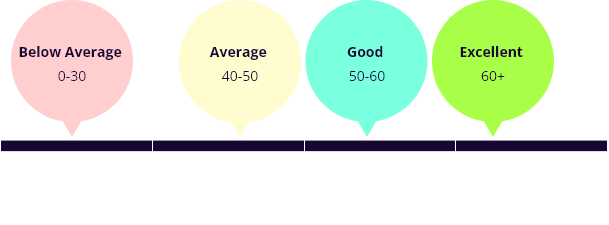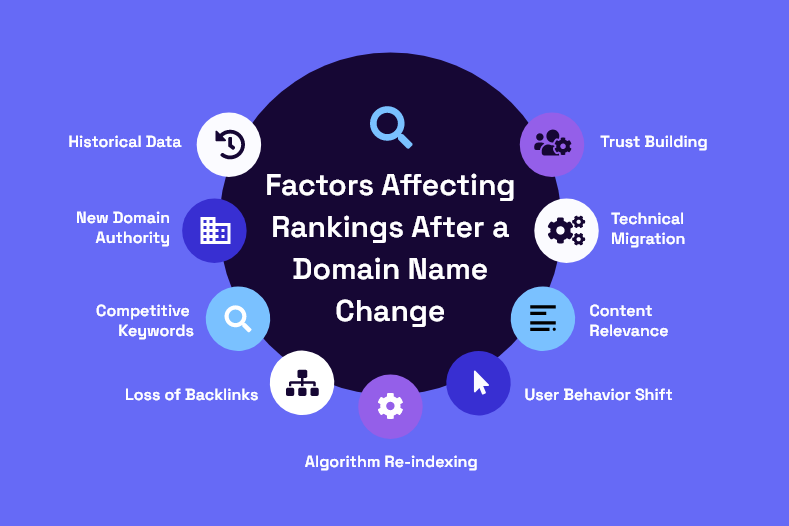So, you’ve got a brand-new website with a shiny new domain, but the Google results aren’t rolling in as expected. Wondering why? It’s probably because of something called Domain Authority. Stick around to find out why ranking after changing domain names takes time and, more importantly, how you can speed up the process.

So you’re planning to switch your website’s name, especially for a new launch or rebrand, but is it a good idea to do so? Well, yes, always yes, but you gotta be prepared. Rule 1, you first need to understand how this change affects search engine optimisation (SEO) and how to handle it to avoid losing organic traffic.
The next question you should have in mind… does changing your website’s name impact SEO? Yes, it does. If you’re used to being on the first page of Google, switching names will likely shake things up. Your old name has a history and some backlinks that Google loves – (what are these? Just scroll down), but with the new name, it’s like starting fresh once again – building up a good reputation takes time. Now let’s discuss these things further.
What makes a website rank?
Domain Authority

Established and reputable websites have an upper hand as they’ve had more time to build authority and target competitive industry keywords. If, for example, you’re trying to rank for common terms like “shoe shop,” it might be tough initially cause you’re up against the big players, so yes, it’s a tough battle. However, focusing on longer, more specific keywords that cater to your niche and consistently targeting them can work wonders. Remember, starting from scratch is challenging but not impossible.
Switching your domain name may lead to losing important backlinks from other websites. Backlinks are essentially links from one website to another. If these backlinks were boosting your site’s credibility, their absence can affect how well your website ranks in search results. So, why should you care about link building? Backlinks, in the eyes of Google, are like brownie points. Each link is a brownie point, the more you have, the higher you rank.
➡️ Read More: How long for SEO changes to take effect?
Users may be familiar with your old domain name, and when you make a change, it can temporarily alter how they interact with your site. This change in user behaviour directly impacts how Google views the relevance and popularity of your website. Essentially, Google pays attention to how people engage with your site, and a positive user experience (UX) is a signal to search engines that your content is valuable and worthy of higher rankings.
If the technical elements of changing your domain, like redirects and the structure of your site, are not smoothly executed, it can lead to problems with how search engines index your site. This, in turn, can have a negative effect on your rankings. In simpler terms, if the behind-the-scenes technical stuff – aka your backend SEO isn’t done well, search engines may struggle to understand and properly rank your website, impacting its visibility in search results.

After changing domain names or unveiling a brand-new one, give yourself time to settle in. Let us help you keep posting top-notch content, and soon your website will grow and claim a top spot in Google search results! For a firsthand look at what our SEO strategy can achieve, read about our SEO roadmap work here. Remember, just like the song says, if you’ve walked five hundred miles, you can walk five hundred more! Consistency is the secret to better SEO rankings, so don’t give up if you don’t see quick improvements. Cheers!